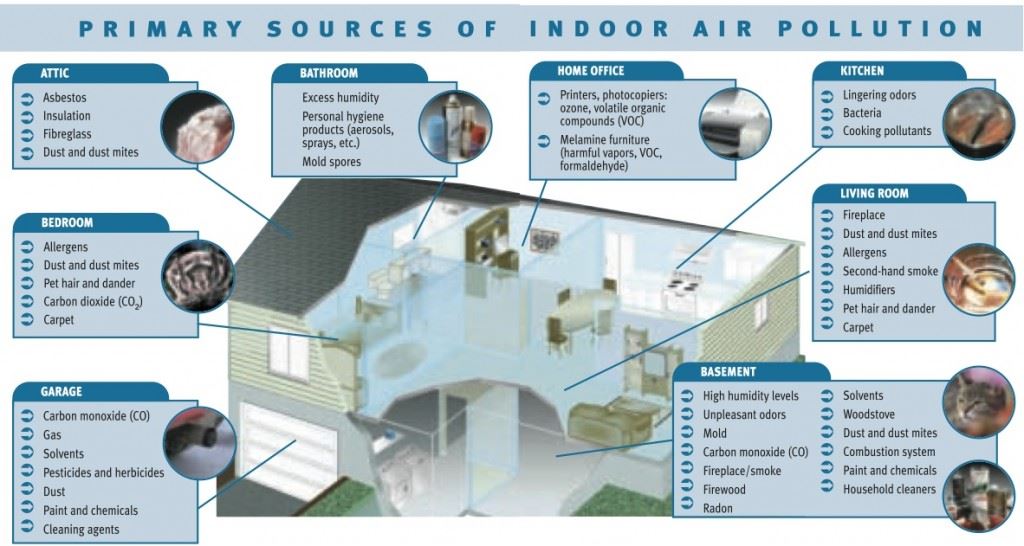The Indoor Air Quality of Your Home
When you take a deep breath, chances are that you inhale millions of particles at a time. In Fact, the average person breathes 50 billion particles an hour according to a recent NPR article.
Invisible dust particles are constantly swirling around in the air. And depending on what’s in those particles, they may be affecting our health. The organic components of the dust particles are thought to have the biggest impact on human health. Research at Columbus Ohio University found that mice exposed to polluted air resulted in fewer connections in the brain, less memory, and signs of depression. Although this is not an indication of the effects of air pollution on human beings, it’s clear that dust can be anything but harmless.

It’s well-known that asthma attacks are triggered by dust, mold, pests such as mice and cockroaches, polluted air, and other environmental aggravations. And nothing sends more kids to the hospital than asthma. One way that people are dealing with dust and their indoor air quality is through HEPA filters.
HEPA is an acronym for “high-efficiency particulate air.” Basically, it’s a filter that can trap a large amount of very small particles that other vacuum cleaners would simply recirculate back into the air of your home. These filters must pass a test to be considered HEPA-worthy. HEPA filters are able to trap at least 99.97 percent of particles of .3 microns.
For more visit the Minnesota Public Radio article.
Minneapolis Location
| (612) 324-1015 | |
| Schedule an Appointment | |
Saint Paul Location
| (612) 324-1015 | |
| Schedule an Appointment | |

